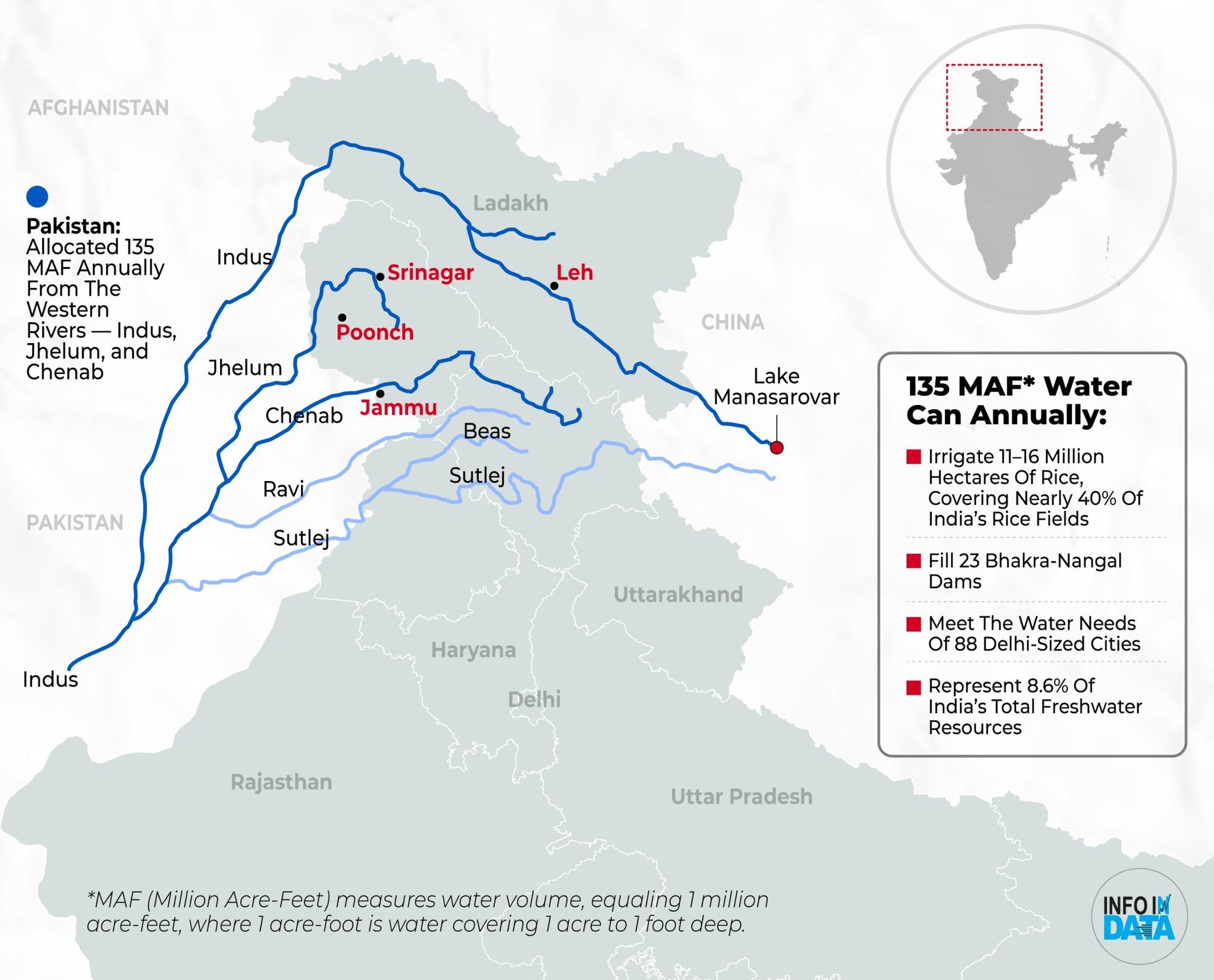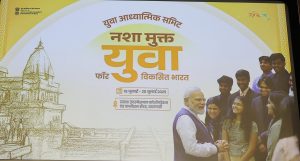India has officially suspended the Indus Waters Treaty (IWT) following the deadly Pahalgam terror attack in April 2025 that killed 26 civilians. This marks a major turning point in South Asia’s water diplomacy and bilateral relations. The Indus Waters Treaty, hailed for surviving wars and conflicts since its signing in 1960, now faces uncertainty as India reassesses its terms under the lens of national interest, climate realities, and regional development needs.
🏞️ Background of the Indus Waters Treaty
The Indus Waters Treaty, signed in 1960 with the World Bank as a broker, divided the rivers of the Indus system between India and Pakistan:
-
India got the eastern rivers: Ravi, Beas, and Sutlej.
-
Pakistan got the western rivers: Indus, Jhelum, and Chenab—constituting 80% of the system’s flow.
Despite wars, political tensions, and terrorism, the treaty held firm—until now.
⚔️ What Triggered the Suspension?
🗞 Source: Hindustan Times, July 19, 2025
The April 22 Pahalgam terror attack acted as the final trigger. Though Operation Sindoor, launched in retaliation, was paused, the suspension of the IWT remains intact.
The growing consensus in Jammu & Kashmir (J&K) and Ladakh is that the treaty has outlived its usefulness and has increasingly worked against India’s strategic and regional interests.
“The treaty is the most unfair document imposed on the people of the region.” – J&K CM Omar Abdullah
📌 Points to Remember:
-
Treaty signed in 1960, mediated by World Bank.
-
Survived all major Indo-Pak wars and skirmishes.
-
Allocated 80% of water to Pakistan.
-
Facilitated obstruction of Indian projects via international arbitration.
-
Increasingly misaligned with current climate and geopolitical realities.
💧 Why J&K and Ladakh Support the Move
With rising temperatures and declining rainfall, the Indus Waters Treaty is seen as outdated and unjust by local populations.
Agriculture, which sustains over 70% of J&K’s population, has been severely impacted due to poor water allocation and delayed projects.
Key reasons for local support:
-
Stalled hydropower projects due to Pakistan’s repeated objections.
-
Wular Barrage, critical for irrigation and navigation, stuck for decades.
-
Inefficient storage and sedimentation issues in existing water bodies.
📌 Points to Remember:
-
IWT limited India’s use of western rivers even within its territory.
-
All projects required Pakistan’s approval, often delayed or denied.
-
20,000 MW hydropower potential in J&K largely untapped.
-
Ongoing desilting and sediment flushing projects to increase storage.
-
Wular Barrage’s revival seen as game-changing for local farming.
⚙️ Strategic Projects Fast-Tracked
India is now expediting the completion of four major hydropower projects with a total capacity of 3,014 MW.
These include:
-
Sediment flushing techniques for dams.
-
Better reservoir management for summer flow.
-
Fast-tracked irrigation canals and flood mitigation works.
📌 Points to Remember:
-
Projects were delayed due to treaty constraints and international arbitration.
-
Post-suspension, clearances and funding have accelerated.
-
Expected to reduce J&K’s reliance on national grid (currently 13% purchased).
-
Enhanced irrigation and all-weather navigation on Jhelum River.
-
Local economic growth and energy independence prioritized.
🌐 Impact on Indo-Pak Relations
Pakistan has called the move a “weaponisation of water”, while India maintains that the treaty was used by Pakistan to obstruct Indian development rather than promote peace.
Historical context shows that the treaty did not prevent wars or terror:
-
1965, 1971, and 1999 conflicts occurred after the IWT.
-
Multiple terror attacks by Pakistan-based groups did not shake the treaty.
-
The peace dividend promised by IWT never materialized.
India’s stance now: any new treaty will require a complete overhaul, factoring climate change, regional needs, and equitable water distribution.
📌 Points to Remember:
-
Pakistan expected to push for revival; India unlikely to concede.
-
Islamabad had a history of objecting to almost every Indian project.
-
Delhi’s diplomatic approach now rooted in regional equity, not past idealism.
-
India’s growing water needs outweigh old treaty sentiments.
-
A new paradigm would require mutual respect and modern data-based frameworks.
Also Read: Yuva Spiritual Summit 2025 in Kashi






[…] A New Dawn for the Indus Waters Treaty […]